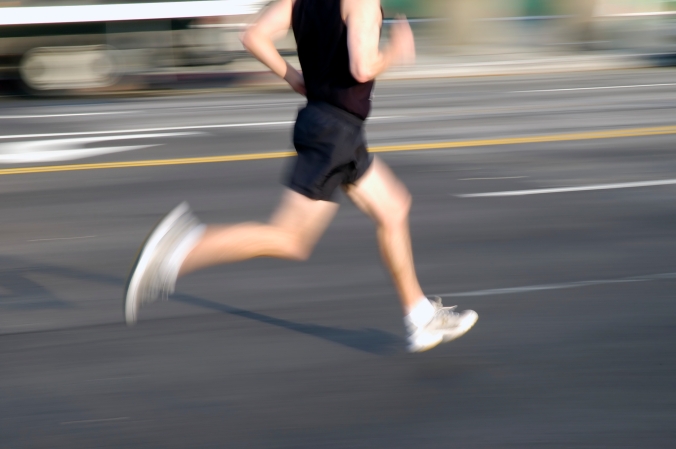Running Tips for Seniors
 Running is an activity that many people pick up later in life, and it’s something that can be improved upon at any age. If you’re already reasonably fit, adding running into your mix of cardio activities can provide some amazing benefits for your body, mind, and overall health. What types of benefits can running bring about for seniors? We will answer that question below, as well as provide some useful tips for getting started.
Running is an activity that many people pick up later in life, and it’s something that can be improved upon at any age. If you’re already reasonably fit, adding running into your mix of cardio activities can provide some amazing benefits for your body, mind, and overall health. What types of benefits can running bring about for seniors? We will answer that question below, as well as provide some useful tips for getting started.
The Effects of Aging on the Body
We have a lot more power to slow the aging process than we may realize. Every decade that passes past the age of 30, adults lose an average of 5% of their lean muscle mass. However, we now know that older people who continue to train by engaging in weight-bearing exercises such as running lose much less lean muscle.
Aside from the loss of lean muscle mass, the aging process brings with it an increased risk of cognitive decline, depression, and a host of various diseases that tend affect seniors. While we cannot stop the clock from turning, we can live a healthy and active lifestyle that lends itself to aging gracefully.
The Benefits of Running
As mentioned previously, many people only begin to take up running after the age of 40. It’s possible to experience a multitude of physical, mental, and emotional benefits by taking up running as a senior.
Physical Benefits
Aside from adding lean muscle or preventing muscle loss, running can help you have stronger bones, a better immune system, and a lowered risk of a variety of diseases.
Let’s consider bone health, for example. Bone is made up of living material that undergoes continual changes. This means that by engaging in weight-bearing exercise such as running, bone can be made stronger. It’s been scientifically proven that the process of strengthening the muscles actually has a synergistic effect of strengthening the bones to which those muscles are attached. Since one in four women and one in eight men over the age of 50 suffer from osteoporosis, developing stronger bones is a huge benefit that running has to offer.
Mental & Emotional Benefits
As we age, our mental faculties begin to decline, and we have a much greater risk of developing depression. Running helps to keep the mind active and engaged, and greatly reduces the risk of depression. This is partly due to the fact that running increases the release of powerful hormones in the body that have a mood-boosting effect.
Practical Tips if You Decide to Begin Running
If you are determined to give running a try, keep the following tips in mind to make the transition go a little more smoothly.
- Start Slowly – Even if you are already reasonably active, it’s always best to ease into a brand new type of exercise. Get some properly fitting running shoes and start slowly for the first few weeks. By doing so, you will likely find that you adjust to your new workout regime quickly.
- Listen to Your Body – It’s normal to experience a little soreness when you begin a new workout routine. This soreness shouldn’t become extreme, however, or it may indicate that you are working too hard or have done too much too soon. Be sure to stretch before and after exercise to reduce soreness and encourage muscle repair. If your body gives you signs to slow down a little, it’s best to follow its heed.
- Find a Running Buddy – Running with a friend or loved one can help you remain accountable and keep you working out in the proper range for your current fitness level. It’s usually more enjoyable to have the company of a loved one as you embark on a new fitness routine.
- Consume a Healthy Diet – Eating a wide variety of healthy foods will help you adjust to your new fitness hobby. A diet rich in fruits, vegetables, and lean protein will help you build lean muscle mass and quickly repair any minor injuries that occur. Supplements such as collagen peptides can help regenerate muscle and lubricate joints as well. Be sure to drink plenty of water and avoid sugary beverages.
- Get Appropriate Rest – Sleep is essential to restoring your body to its full capacity after each workout. Without adequate rest, you will likely feel run down and sluggish. Rest allows you to work out at your peak effectiveness level. You will recover from workouts much faster and advance in running skill if you get adequate sleep.
Running is an excellent way to strengthen your muscles, gain confidence, maintain a healthy cardiovascular system, and stave off the mental decline of aging. If you’ve already been an active senior, you likely won’t have that much trouble expanding into running. It’s still wise to take it slow and listen to the signals your body gives you along the way. By following the advice and helpful tips outlined here, you can become a successful runner no matter your current age or fitness level. What are some tricks that worked for you or a friend after taking up a new exercise? Share with us in the comments below!

